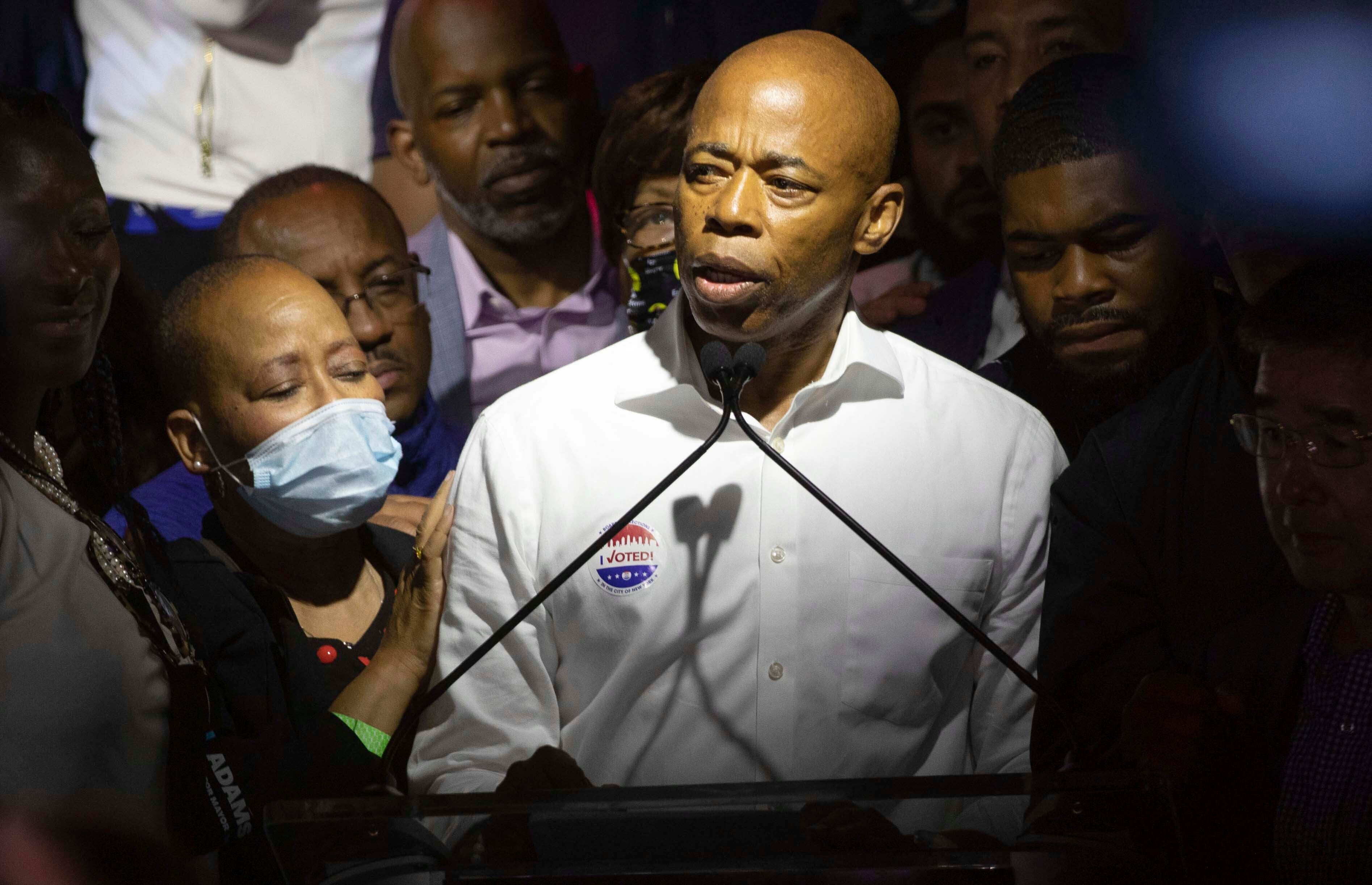The NYC mayoral election is a mess. So is Eric Adams’ response
Adams has followed the Trumpian playbook in questioning the legitimacy of entire election as soon as he lost his lead. Yes, there have been discrepancies — but timing and wording matter


If you’ve been paying any attention at all to the New York City mayoral race, you’ve probably noticed that it’s a mess. The city enacted ranked-choice voting for the first time, and it appears that everyone from David Wasserman of the Cook Report to the New York City Board of Elections is having a hard time keeping up. But there is one candidate who seems to be taking advantage of this confusion in a distinctly Trumpian style.
I am talking about Brooklyn borough president Eric Adams.
After the first round of voting (which did not include absentee ballots), it looked like Adams had a clear lead. Wasserman tweeted at the time, before any other votes had been tabulated, that Adams’ lead was so pronounced he would be very surprised if any of the other candidates would be able to catch up. Adams began taking an early victory lap, soon declaring himself the “new face of the Democratic party.”
Then, when the Board of Elections released its latest round of votes on Tuesday, which included ranked-choice votes, Adams’ lead all but evaporated. Almost immediately, the Adams campaign released a statement regarding discrepancies in the vote tallies. And to be fair, there were discrepancies. The board accidentally included 140,000 test ballots in their published tallies. But the problem is that not only did Adams’ statement come before any of the other leading candidates, it was released ahead of confirmation from the press or the board itself, using vague yet accusatory language that cast a nefarious pall over the whole election without explanation.
“The vote total just released by the Board of Elections is 100,000-plus more than the total announced on election night, raising serious questions,” the statement read. “We have asked the Board of Elections to explain such a massive increase and other irregularities before we comment on the Ranked Choice Voting projection.”
“Raising questions” is the language of conspiracy theorists, as is an opaque reference to “other irregularities.” And while it is certainly fair to insist on transparent and accurate results, the framing of “before we comment on the Ranked Choice Voting projection,” i.e. the one in which it looks as if Adams may lose, undermines faith in the eventual results should one of the other top-tier candidates, Maya Wiley or Kathryn Garcia, actually win.
Without using the words “fraud” or “rigged,” Adams has still seized on the election security narrative currently dominating our politics, and in bad faith tried to leverage a clerical error to his advantage. The statement was released without context and without clear information. If it had been, the public may have noticed that there’s no sign the dummy ballots benefited either of Adams’ closest rivals. If anything, they may have boosted his own numbers.
By contrast, both Garcia and Wiley released statements on the discrepancies much later in the evening, after the Board of Elections had released its own statement and apology, demanding transparency from the agency. Also a notable contrast, while Adams’ statement made clear that he still believed himself the eventual winner, Garcia and Wiley both underscored the importance of strengthening faith in our democracy.
“Today we have once again seen the mismanagement that has resulted in a lack of confidence in results, not because there is a flaw in our election laws, but because those who implement it have failed too many times,” Wiley’s statement read. The statement released by the Garcia camp said, “Every ranked choice and absentee vote must be counted accurately so that all New Yorkers have faith in our democracy and our government. I am confident that every candidate will accept the final results and support whomever the voters have elected.”
It’s unclear what, if any, impact Adams’ preemptive statement will have on the final election or on public opinion. What is dangerous about the statement is that in making it, Adams is following a path cleared for him by former president Donald Trump. Trump began casting doubt on the validity of the election before it was even underway. And when it was clear that he had lost, he embarked on a lengthy legal battle to contest the results, leading to the insurrection on January 6, and continues even today with the unending Arizona audit.
In other words, Trump has shown that questioning the validity of the election you’re losing is a workable political strategy — and one that is open to Republicans and Democrats alike. Pundits have fretted about this possibility since Trump left office, and this may just be a warning shot that those fears are about to come true.

Join our commenting forum
Join thought-provoking conversations, follow other Independent readers and see their replies